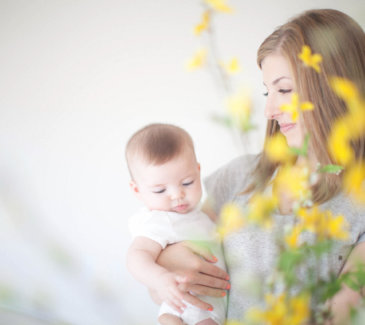I knew my ten-year-old son Elijah was on the Spectrum long before he was diagnosed.
Maybe it was my education as a counselor and two decades of experience working with kids in and out of Child Protective Services that gave me an idea, but what I think it really was is mother’s intuition that told me there was something extraordinarily special about Elijah from an early age.
Yes, you read that right, special.
A gentle beginning
Elijah was an extraordinarily happy baby. While I know that’s not the story of all autistic children, Elijah was content staring out into space for long periods of time, entertaining himself opposed to being entertained, avoided conflict, and was the first to hand over anything that was asked of him from another child.
He loved to snuggle, took long naps, and ate just about everything I put in front of him for the first year-and-a-half. Then I started to see a difference in him that I hadn’t in my previous three children.
Although he could stand and would walk around the furniture holding on, Elijah didn’t start walking until he was 18-months old. Although I brought my concerns up to his pediatrician more than once, I was told repeatedly that he’d walk when he was ready.
Besides, his doctor assured me, Elijah met all his other milestones with ease. When Elijah turned two-years-old his “terrible twos” were less “terrible” and more “horrific” than I’d ever expected or seen in my previous three kids combined.
Instead of the typical tantrums of throwing himself on the floor, crying, being able to figure out that he wasn’t going to get what he wanted, and moving on, they were full-blown meltdowns that lasted for hours, and he never grew out of them.
No matter what discipline I applied or distraction I tried, Elijah was unable to learn to self-regulate his behavior. Elijah’s symptoms became more evident as he grew older, started school, and was more socially active.
He couldn’t grasp or hold onto basic age-appropriate social skills that kept him from making and keeping friends or from offending people in public such as blurting out that someone was “fat” or screaming that he “hated” a friend or sibling when there was conflict. He would lash out physically at times.
Although he was highly intelligent and scored several grades above his peers in academic testing, Elijah had difficulty concentrating in class and would become easily overstimulated by too much noise, light, movement, or even the texture of his jeans rubbing against his legs for too long.
Elijah wasn’t just scared of bees and wasps and sleeping alone at night, he was horrified. And at any slight of perceived injustice, overstimulation, fear, pressure or stress, Elijah would start crying. Blood curdling screaming would follow, then he’d run and hide in a corner somewhere in the fetal position.
Blessings over difficulties
I know what you’re thinking. How in God’s green earth could a child like that be special? Handful? Yes. Frustrating? Absolutely. Pulling-your-hair-crying-in-the-bathroom-alone-praying-asking-God-why? Yep. Been there. But extraordinarily special? You bet your life he is!
Look, raising a special-hearts child is challenging, but the blessings far outweigh the difficulties. (Side note: I disdain the term special-needs because it’s used only for those who have physical or mental disabilities. The way I see it, as sinners, we are all special-needs individuals, so I use the term special-hearts in regards to my boys and others like them.)
Let me explain. Elijah is my second special-hearts child. My eldest son, Paul, is a special-hearts adult. He is 35-years-old and has a different diagnosis, but he also received his first diagnosis around Elijah’s age.
Raising Paul was harder than raising my daughters who don’t have a diagnosis, but God’s calling on he and Elijah’s lives are no less important or viable. As a parent, I still have the same responsibility to my sons as I do my girls—to raise them to fulfill God’s will in their life in whatever capacity they are capable of doing so.
I have to keep in mind that it’s not my job to limit what that capacity is because of their disability. God is capable of using anyone for any purpose at any time. Nor can I make excuses for them not to be able to fulfill God’s calling on their life because of their disability.
In either example I would be putting God in a box.
My own rebellion
I will admit that I went through some very hard years trying to parent Paul, wrestling with God about why he gave me such a “burden” to carry, especially during his teenage years when he was defiant about taking medication that would help him.
He sabotaged so much of the care I was providing him and rejected my love, which was best for him. In those years I pressed into God and he reminded me of my own rebellion and sinful behavior towards him in the same exact way, which not only brought me into surrender unto him but made me even more of a spiritual prayer warrior for my son.
I prayed for him over what I knew God wanted for me in our relationship. Twenty-five years later I can tell you that Paul and I have endured much together, but he is a passionate man of God who says it is because he had a “praying momma.”
I am indeed a woman of prayer and faith that I would not otherwise have had it not been for my special-hearts son who challenged me in his continual battles with his disability.
Children are a gift
Psalm 127: 3 tells us, “Children are a gift from the Lord; they are a reward from him” (NLT). Nowhere in that verse is there an exception clause for children with disabilities.
This verse has everything to do with expectation and perception. See your child through the eyes of the Lord as a reward—then seek to see what God is teaching you about his love for you through your child, and then love your child as he loves you.
Consider a few extra resources:



